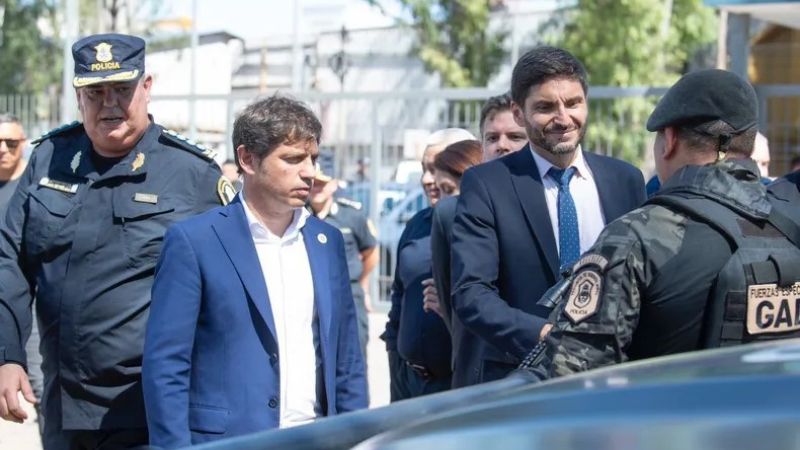
At the beginning of the week, the governor of the Province of Buenos Aires, Axel Kicillof, and his counterpart from Santa Fe, the radical Maximiliano Pullaro, met in Buenos Aires territory to seal “a cooperation agreement in security matters”, given the advance of the drug gangs. This is Operation Northern Saturation, which, together with the installation of a base of the UTOI (Tactical Unit of Immediate Operations), is intended for control by the security forces of the Northern border of the Province of Buenos Aires, especially the rural areas close to the city of Rosario, “a place where drugs enter by land,” according to the government.
The meeting and the common photo was also a political message in the midst of the tension between the national government and the governors, after the rejection of the DNU in the Senate, which both Kicillof and Pullaro accompanied, and when the discussion on the cut of funds for the provinces that governments try to resist.
The Province of Buenos Aires has just added its support to the “Crisis Committee for the City of Rosario”, promoted and chaired by the Minister of Security Patricia Bullrich, and through which the national government enables the deployment and actions of national security forces. in the city of Santa Fe. This Committee is made up of the heads of the National Gendarmerie, Argentine Naval Prefecture, Argentine Federal Police, Airport Security Police and the Federal Penitentiary Service. In addition, Bullrich requested the Ministry of Defense, headed by Luis Petri, “for the support of the Armed Forces in internal security operations in the city of Rosario.”
The Buenos Aires governor contributed to the operation of this Committee, giving the national government on loan 80 armored patrol vehicles and transport vehicles for the use of the security forces that settled in Rosario.
“Just as we have done with the 80 patrol cars that are already operational in the province of Santa Fe, we will always be available and reaffirming the need for a present State,” Kicillof highlighted during the meeting with Governor Pullaro and added, “We are convinced that To provide a forceful response against drug trafficking, greater coordination is required not only between the provinces; but also with the federal forces.”
Collaborationism and militarization
The city of Rosario has not yet emerged from the impact generated by the murder of four workers in the same week at the hands of drug gangs, with the aim of leaving threatening messages to the authorities and sowing fear.
Faced with this, the national government’s response is to repeat the same old recipe, militarizing the city to the extreme. A policy that does not aim to resolve the crisis, on the contrary, increases violence and crime. “This is the eleventh time the same thing has been announced. Every time the national or provincial governments brought federal forces to Rosario as reinforcement, as a short-term solution, this did not work in the face of the underlying problem,” notes Santa Fe journalist Rodrigo Miró who closely follows the issue.
The Kicillof government decided to collaborate with this militarization plan that Patricia Bullrich is carrying out today, deploying troops in the neighborhoods of Rosario, in addition to deepening the use of security forces in the North of Buenos Aires. At a press conference, Kicillof celebrated the agreement on security with the radical Pullaro, “This is one more step in the collaboration and coordination that is needed to confront crimes that do not recognize national and provincial borders,” he said.
Meanwhile, drug trafficking continues to operate through its organizations that have the collaboration of security forces, the Judiciary, political and financial powers. As different studies demonstrate in relation to the growth of the drug business, these criminal organizations do not arise behind the backs of governments, since to sustain their own territorial power structures and transport large quantities of drugs, they need the support that security forces can provide, public officials, judges and prosecutors.
The reality is that as long as the political regime that protects drug traffickers exists, organized crime will continue to operate beyond the borders.
Source: www.laizquierdadiario.com

